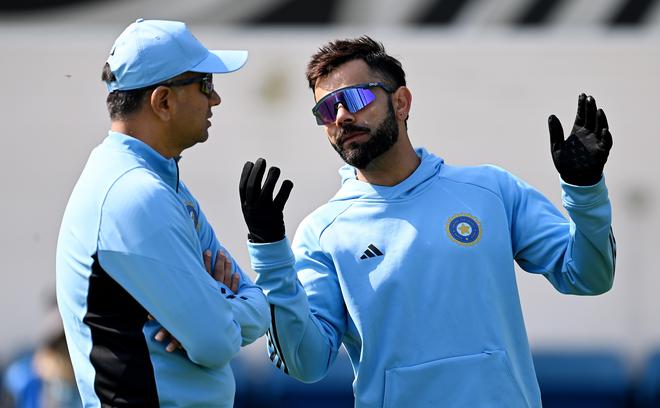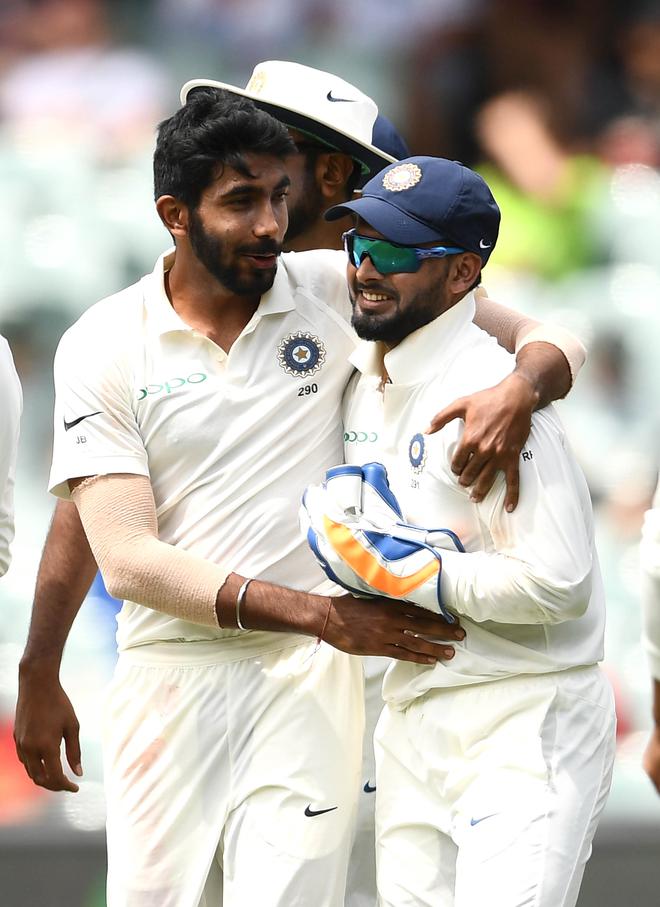

Under whimsical English skies, Test cricket seems to echo that Keatsian line: a thing of beauty is a joy forever. John Keats may not have thought of the willow game while etching his poetic musings but there is no denying the visual aura of cricket’s longest format.
The whites, the red cherry, grass, deep blue skies, odd dark clouds, and a battle of attrition lasting five days, all constitute a facet of sport that is a striking contrast to a current era lost in dwindling attention spans, microwaved food, Twitter-angst and breathless Twenty20! But on the evidence of the last few weeks that featured the ICC World Test Championship (WTC) final and the latest Ashes Test, with Australia winning both, there is an audience for Tests, especially in England. And in Australia and some venues across the Indian subcontinent, crowds do turn up.
Closer home, India has now lost two WTC summit clashes. The 209-run defeat to Australia at London’s Oval and the loss to New Zealand in the inaugural WTC climax at Southampton in 2021 can be seen as either the glass being half full or half empty. In both WTC cycles, India was perhaps the most consistent side and yet when it came to the crunch, there was no miracle or mettle to be savoured. India’s drought in ICC events extends all the way back to 2013 when the Champions Trophy was secured and currently the crossroads seem inevitable.
Grappling with cricket mortality
The squad’s core unit is grappling with the mid-thirties when sporting twilight draws close. But there are complications as this is a year which has an added ICC significance, with the conventional 50-over-per-side World Cup to be held in India. Usually squads are linked to the World Cup’s four-year cycle and key players often look at one last stab at the glittering trophy. At times it can go awry too as the great Javed Miandad realised during the 1996 World Cup. Past his prime, his last steps culminated in a run out against India in a high-voltage quarterfinal at Bangalore as it was known then.
The question that India needs to tackle is this: should it target the World Cup, and then build afresh for the diverse challenges ahead? Skipper Rohit Sharma (36 years), Virat Kohli (34), Cheteshwar Pujara (35), Ajinkya Rahane (35), R. Ashwin (36), Ravindra Jadeja (34) and Mohammed Shami (32) are all on the wrong side of 30.
The selectors have other headaches to deal with too and these are issues that demand sensitivity. Ashwin, as evident in his recent interview to The Hindu and The Indian Express, and Kohli, going by his cryptic social-media posts, are not in a happy space. Wounded egos need to be assuaged, frank conversations and an arm around the shoulder are essential.
It isn’t that the cupboard is bare, and in Shubman Gill, Jasprit Bumrah and Rishabh Pant, India has a trio that can smoothen the inevitable transition. Just that the last two are on the comeback trail following an injury and an accident respectively. It is imperative that India, to start with, builds a new unit for Twenty20s with Hardik Pandya at the helm and in time for next year’s Twenty20 World Cup in the Caribbean and the United States. Like M.S. Dhoni and his unheralded warriors in the inaugural 2007 edition, Pandya and his men may turn around India’s ICC fortunes.
Getting the priorities right
In ODIs, especially with the World Cup looming ahead, too many changes could affect the synthesis of the team. Importantly, the selectors and the BCCI have to get their priorities right vis-a-vis Tests. Do the crowns matter only in limited-overs cricket? To dive into a WTC final a week after the IPL climax at Ahmedabad is lunacy. Scheduling is vital and the BCCI missed a trick in not negotiating with the ICC or scheduling the IPL in such a way that the players got at least a fortnight to prepare for the WTC final.
As they age, batters witness a decline in their averages, pace bowlers slow down and spinners have their aches. When the current WTC cycle’s final is unveiled at Lord’s in 2025, will the present core still be around? A brand new outfit may not cut ice but a blend of the established stars and fresh players is essential. Sourav Ganguly retired from international cricket in 2008, Rahul Dravid and V.V.S. Laxman in 2012, Tendulkar in 2013 and the current set of batters gradually found wings after that.
Among the quartet of Rohit, Kohli, Pujara and Rahane, two may have to step aside or perhaps be spoken to by the selectors. India has the familiar figures of K.L. Rahul, Shreyas Iyer and Mayank Agarwal waiting for a second wind while Prithvi Shaw seems to be a bit lost. Among the new brigade, with Gill having stolen a march, there are Yashasvi Jaiswal, Rajat Patidar, Sarfaraz Khan, Abhimanyu Easwaran, Ruturaj Gaikwad and Tilak Varma awaiting their turn. India needs to get squads pivoted onto each individual format while stars plying their wares across cricket’s three versions need to be kept at a minimum to prevent burnouts.
Kohli playing all three formats and the IPL, is spreading himself thin, so too are Rohit and Jadeja. Either the players prioritise what cricket they want to play or the BCCI top-brass and coach Dravid sit with them and chalk out a plan. Hopefully Gill, Bumrah and Pant will lay the roots for the next generation to flower and perhaps among them a new Test captain will eventually be found while Pandya remains the frontrunner for a leadership role in the abridged versions.
The selectors picked freshers in the early 1990s and the late Raj Singh Dungarpur labelled it as the team of the ’90s but not many lasted. Imbibing those cues from history, a drastic cull now would be extreme, building anew without entirely discarding the old could be the mantra. Above all, the WTC cycle has to be treated as a standalone milestone and not an afterthought juxtaposed between the World Cups and the IPL.
Sport isn’t entirely about ‘show me the money’, performance on the turf is equally intrinsic to the commercial veins. More A tours, perhaps even reviving that old warm-up fixture — Board President’s XI against the visiting international squad — should be part of the revival plan. At the highest level, accepting that the skill-base is largely the same, it is temperament that distinguishes a great cricketer from an also-ran. This attribute can be discerned through the sieve that A tours and warm-up games offer. The time for change is now, albeit in a measured way.







